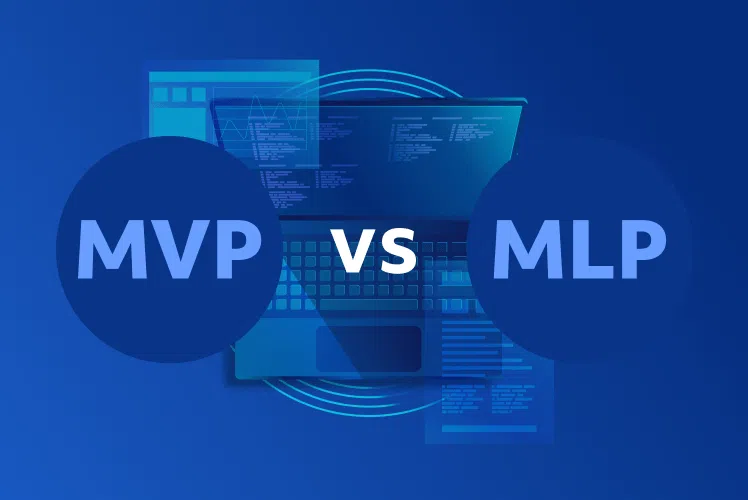Table of Contents
In today’s fast-paced world of technological advancements, companies rely heavily on technology to streamline their operations and stay competitive. A solid software foundation is essential for any successful business. However, implementing and managing complex technology solutions can be a daunting task. This is where a solutions architect comes in.
But what is a solutions architect, and what is their function in the development process? In this article, we’ll explain the role of a solutions architect, including their responsibilities, necessary skills, and the importance they hold for organizations and projects.

What is a solutions architect?
A solutions architect is responsible for developing a comprehensive technical strategy to solve a specific business problem. They design complex IT solutions for organizations based on their business needs, then craft, articulate, and oversee the implementation of the solution. We can say that this person builds the bridge between a company’s needs and technological solutions. The process requires regular feedback, and adjustments to properly design and implement potential solutions. It is a crucial role in the IT industry, requiring specialized expertise and skills.
Solution architect job description
The success of an IT project depends on a carefully crafted software architecture. A solutions architect must take into account various technical and customer requirements, ensuring effectiveness, scalability, and alignment with established business needs. But what does a solution architect do?
Tasks and responsibilities
The involvement of a solution architect comes after a business analyst has completed the process of prioritizing features and identifying constraints. The solutions architect creates diagrams and specifications, outlines the engineering requirements and limitations of the device or program, selects an appropriate technology stack, and performs other duties to guide the workflow toward achieving the desired outcomes for stakeholders.
As the specific expectations of a solutions architect may differ depending on the company or industry, these are the common expectations for the role in general. A solutions architect should be able to:
- Consult and communicate with clients and internal stakeholders to develop suitable solutions;
- Analyze specific enterprise requirements;
- Conduct design, and performance analysis of solutions;
- Participate in technology selection to identify the most appropriate tools and resources;
- Provide technical leadership to a team throughout the project lifecycle;
- Develop a solution prototype to test and refine the proposed solution;
- Review and validate solution designs from other team members;
- Facilitate brainstorming sessions to generate potential solutions for business challenges or needs;
- Identify opportunities for process optimization and improvement;
- Collaborate with product and delivery teams to design scalable solutions and products;
- Oversee the development of the solution to ensure it meets requirements and standards.
Solution architects communicate closely with technical representatives of the customer (if the customer has any) and directly with developers, leaders, QA testers, and business analysts. Although solutions architects typically assume a leadership role, their involvement in project management activities is mostly supportive. Their main goal is to ensure that resources, risk recognition, and planning remain aligned with the solution objectives.
Required skills and education
If you have ever wondered how to become a solutions architect, know that education and experience are crucial.
They are highly qualified specialists that possess extensive knowledge in a specific technology area or a broad understanding of various technologies. Thus, to become a solution architect, you will likely need a bachelor’s degree or higher in information technology, computer science, software engineering, or a related field. For more senior roles, additional education, such as a master’s degree or experience in particular IT areas, may be required.
To handle all the responsibilities of a solutions architect, you must also possess specific skills:
Technical knowledge
There are several technical skills and knowledge areas that are essential to performing the roles of solution architect effectively.
Application architecture. First of all, solution architects must have a deep understanding of application architecture, including the design and implementation of application components, interfaces, and services. This includes knowledge of programming languages, frameworks, and tools.
Cloud computing. With the increasing popularity of cloud computing, a solutions architect must possess knowledge of cloud platforms like Amazon Web Services (AWS), Microsoft Azure, and Google Cloud Platform. It includes knowledge of cloud architecture, deployment models, and services, such as computing, storage, and networking.
Networking. An architect must possess knowledge of networking technologies such as TCP/IP, routing, and switching. It includes the ability to design and implement network architectures that meet the requirements of the organization.
Data modeling. A solutions architect must be able to design and implement data models, including knowledge of database technologies, data warehousing, and data integration.
Security. The knowledge of security technologies and their best practices, including authentication, authorization, encryption, and security protocols – are of great importance for a solution architect. It includes the ability to design and implement secure architectures that meet the requirements of the organization.
Communication skills
Communication skills are crucial for a solutions architect for several reasons. Firstly, these specialists need to be able to effectively communicate with stakeholders, project managers, developers, and software vendors involved in the software development process. Clear communication helps ensure that all parties involved in the project have a shared understanding of the project’s goals, requirements, and constraints. This is particularly important when working with non-technical stakeholders who may not have a deep understanding of the technical aspects of the project.
Analytical skills
Apart from the technical aspects of a project, a solutions architect must also have a deep understanding of the company’s internal and external business processes, as well as its corporate strategy and goals. Software architecture and the systems integrated into it consist of numerous details that work together. An architect needs to be highly attentive to these details since overlooking any of them could impede the development process, resulting in breakdowns, or lead to an inefficient software solution.
Project and resource management skills
A solutions architect is not typically involved in project development directly. However, they are responsible for ensuring that the project’s resources are utilized efficiently and effectively. To achieve this, they should possess a business-oriented mindset and be capable of identifying the most efficient solution for every aspect of the architecture.
Solutions architect vs business analyst: what’s the difference?
While solutions architects and business analysts share some job duties, there are also fundamental differences between these two roles. Business analysts conduct research to pinpoint areas for improvement within a company. They typically operate within specific departments to evaluate workflow processes and offer recommendations for enhancement. Using the information they gather, analysts develop strategies and plans to guide the implementation of new systems. Business analysts often work closely with stakeholders outside of IT, such as managers, executives, and departmental employees. They understand the needs and requirements of the business and translate them into technical specifications.
On the other hand, solutions architects leverage data to identify the root cause of an organizational problem and then create a plan to solve it. They utilize their expertise in different technologies to create a solution that satisfies the company’s requirements.
A solutions architect is a professional with a strong technical background, who typically deals with server infrastructure. Their role is to take a bird’s eye view of a project or system, understand its various components and how they interact with each other, and then dive to the component level to determine the specific technologies required. This includes selecting the appropriate hardware and software components, designing the system’s data architecture, and ensuring that the system is scalable, secure, and maintainable. In contrast, an analyst tends to focus on features, functional requirements, screens, and mockups, reflecting on these aspects of the system rather than the technical infrastructure.
Solutions architect certification
If you’re a solutions architect, it’s advisable to obtain certifications in relevant skills or technologies specific to your industry or field. The skills and knowledge required for the job may differ depending on the role. Employers often require certifications that demonstrate an architect’s proficiency in various aspects. The most crucial certifications for solutions architects include:
- AWS Certified Solution Architect;
- The Open Group Certified Architect;
- TOGAF certification;
- Google Professional Cloud Architect;
- Microsoft Certified Solutions Expert (MCSE).
Enterprise architect vs Solution architect vs Technical architect
There are three different architecture-related roles in the IT industry. Each of these roles is equally essential for the success of a project they are involved in and cannot be substituted by any other positions:
- Enterprise Architect
- Technical Architect
- Solutions Architect
Solution architecture includes a lot of processes that connect business problems with technology solutions. Its objectives are to:
- Identify the optimal technological solution for current business challenges;
- Describe the software’s structure, characteristics, behavior, and other elements to project stakeholders;
- Define features, development stages, and solution requirements;
- Provide specifications that outline how the solution is defined, managed, and delivered.
However, two other architect-level positions are frequently mistaken for solution architecture. So let’s clarify the primary distinctions.
Enterprise architecture
Enterprise architecture focuses on constructing complex enterprise ecosystems and solving high-level strategic issues. It defines the strategic direction of the business architecture, leading to an understanding of the necessary technical facilities to support that architecture.
An enterprise architect is responsible for designing and overseeing the technical architecture of an organization. They work to align technology solutions with business goals and objectives, ensuring that the organization’s overall technological infrastructure is efficient, effective, and secure.
Meanwhile, solution architects have a much more practical role. They take the business requirements and turn them into new software solutions that use a company’s emerging technology.
In addition, enterprise architects are responsible for developing and maintaining technical standards, policies, and procedures, as well as ensuring compliance with industry regulations.
Technical architecture
Technical architecture is a crucial component of enterprise architecture that concentrates on designing and implementing technical solutions that align with an organization’s business objectives. A technical architect is responsible for designing the technical aspects of a software solution or system. They are responsible for developing the overall technical strategy for a software project, including selecting appropriate technologies, defining technical standards and guidelines, and ensuring that the solution is scalable, maintainable, and secure.
Technical architects typically have a deep understanding of software development, as well as extensive knowledge of software design patterns, programming languages, and development tools. They collaborate closely with development teams to convey IT strategies and establish best practices that should be adhered to throughout the project.
The primary distinction between a technical architect and a solutions architect is that the first concentrates mainly on the engineering aspect.
The importance of solution architects
In today’s digital age, solution architects play a crucial role by bridging the gap between technical and business requirements. A robust technology foundation is essential for companies operating in all sectors, and often, it is the key differentiator that sets them apart from their competitors. This is why solution architects, who possess the expertise to make broad-ranging and impactful software and technology decisions, are in high demand and are considered a valuable asset to any organization.


Comments